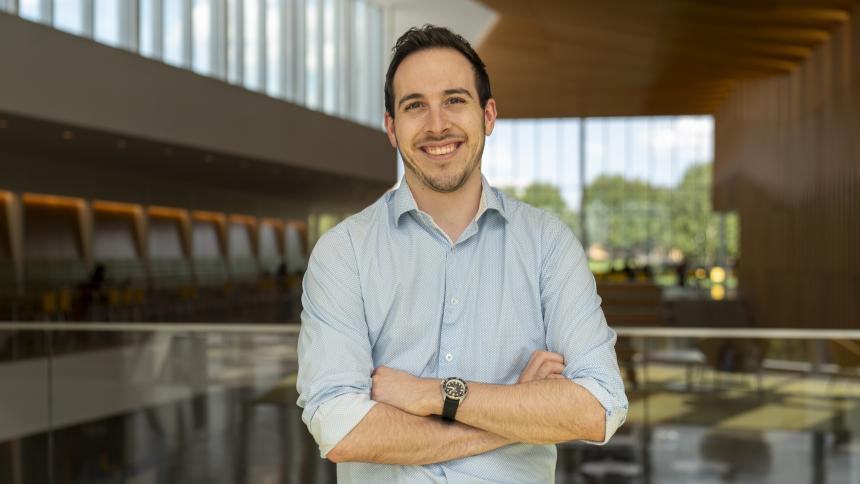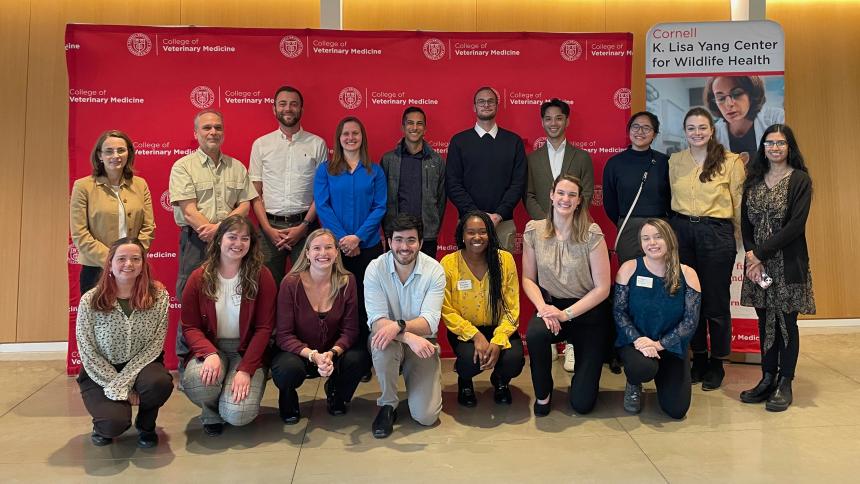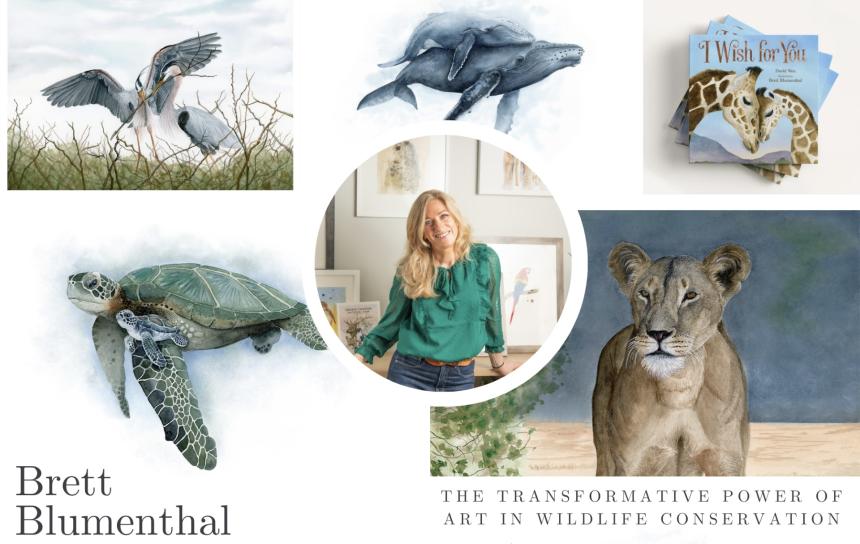In the News

March 24, 2025
Drs. Craig Stephen and Marcela Uhart will headline the inaugural Cornell K. Lisa Yang Center for Wildlife Health Distinguished Speaker event on March 28 at Cornell’s College of Veterinary Medicine. They will discuss critical One Health and conservation challenges, highlighting the connections between human, animal, and ecosystem health.

Video
February 05, 2025
In this eCornell keynote, Drs. Amandine Gamble and Marie Bouilloud share their recent fieldwork experiences in the Antarctic and sub-Antarctic regions to help illustrate how wildlife health is connected to human activity, even thousands of miles away.

Blog
January 25, 2025
Dr. Steve Osofsky, director of the Cornell K. Lisa Yang Center for Wildlife Health, reflects on a transformative year, and looks forward to leading the way in shaping how the center can help tilt the scales back toward the type of environmental stewardship we ourselves need to survive as a species.

Video
January 24, 2025
Professor Steve Osofsky was invited to give the keynote address, “Birthing Planetary Health: A Midwife’s Tale,” at the Sustainable Cornell Summit 2024.

October 07, 2024
Growing pressures on the environment are increasing needs and work opportunities for veterinarians in wildlife conservation. A gift of $35 million received by the Cornell University College of Veterinary Medicine — the largest in the school's history — will help fund activities of its wildlife health center into the future.

Announcement
September 17, 2024
After an international search, Carmen R. Smith ’17, DVM ’21, has been selected as the inaugural Cornell K. Lisa Yang Center for Wildlife Health Free-Ranging Wildlife Pathology Fellow, who will focus on unraveling the causes and conditions responsible for unexplained wildlife mortality events around the world.

July 09, 2024
The student-led Zoo and Wildlife Society at the Cornell University College of Veterinary Medicine hosted their second annual Wildlife Conservation Day featuring a diverse set of speakers.

Video
May 06, 2024
Cornell alumna Brett Blumenthal BArch ’96, MBA ’04, gave an inspiring talk on "The Transformative Power of Art in Wildlife Conservation," hosted by the Cornell University College of Veterinary Medicine, the Cornell K. Lisa Yang Center for Wildlife Health, and the Zoo and Wildlife Society.

Video
April 12, 2024
In this eCornell keynote presentation, Dr. Martin Gilbert, Helen Lee, and Laura Bernert from the Cornell K. Lisa Yang Center for Wildlife Health share their fieldwork experiences in Asia and help illustrate how the health of wildlife and our own health and well-being are inextricably linked.
Video
March 18, 2024
Johns Hopkins Science Diplomacy Coordinator and Cornell alum Isabel Jimenez, DVM '21, speaks with Professor Steve Osofsky about his career in conservation and how up-and-coming applied scientists can enhance their chances of translating their work into real change for good.
